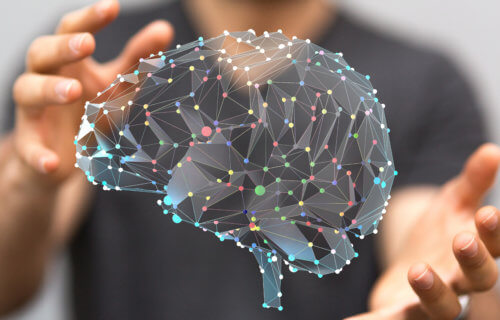SAN DIEGO, Ca. — Ever tried concentrating so hard on remembering something in order to recall it from memory with ease later on? A University of San Diego-led research team finds that activity in the hippocampus — the brain’s memory center — before someone tries forming a memory plays a big role in whether memories stick around for good.
Researchers say that the more active the hippocampus, the more likely people will be able to remember. The authors term this increase of activity before memory creation as “encoding mode.”
“Since we know, based on earlier research, that people can actively suppress memory formation, it might be possible for people to get their hippocampus ready to encode as well,” explains John Wixted, lead author of the study and professor of psychology at UC San Diego, in a university release.
The study involves epileptic patients and a memory recall task. It’s very common for psychology and neuroscience researchers to use people with epilepsy for their studies since their brain waves are often monitored for activity anyway. In the memory recall task, patients were shown a series of words and had to indicate whether a word was new or if it had been repeated.
Researchers were interested in the brain recordings taken from the hippocampus, amygdala, anterior cingulate cortex and prefrontal cortex — four regions that create a “memory network.” They used the recordings of 34 epileptic patients who were undergoing monitoring at Barrow Neurological Institute in Phoenix, Arizona.
The average firing rate of the neurons was calculated for a few seconds preceding and throughout the duration of the presentation of a word to the patient.
The analysis shows that only activity in the hippocampus about one second before the presentation of a word predicts whether or not a patient will remember the word later on. Activity in the other three regions has no impact on how well the patients perform in the task.
“If a person’s hippocampal neurons were already firing above baseline when they saw or heard a word, their brain was more likely to successfully remember that word later,” says Stephen Goldinger, professor of psychology at Arizona State University and a collaborator on the project.
The one second of activity in the hippocampus is the critical moment that determines if the brain is in “encoding mode.”
“‘Encoding mode’ is more than simply paying attention to the task at hand,” says Wixted. “It is paying attention to encoding, which selectively ramps up activity in the part of the brain that is the most important for making new memories: the hippocampus.
“A key question going forward is how to put our brains into ‘encoding mode’ when we wish to do so,” Wixted concludes.
The study is published in the Proceedings of the National Academy of Sciences.
Like studies? Follow us on Facebook!
